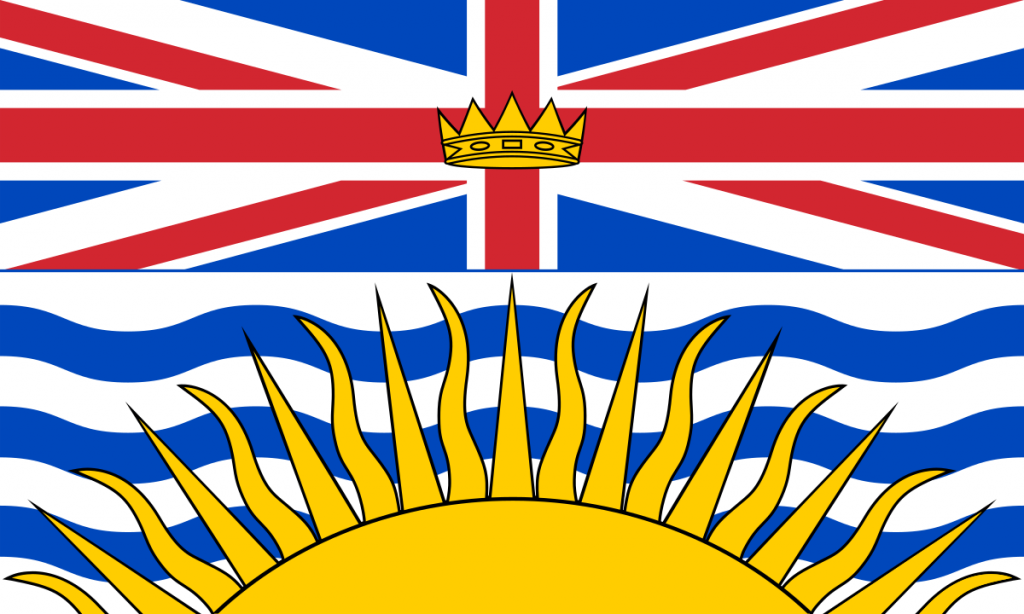B.C. LOVES EVS
Electric vehicles sales are on the rise in British Columbia, with more than 54,000 light-duty EVs now registered in B.C, says the provincial government. Energy Minister Bruce Ralston says that’s the highest reported purchase rate of electric vehicles in North America, making the province a leader in the EV sales market.
B.C.’s annual zero-emission vehicle report says residents are also adopting electric technology in less traditional ways, including motorcycles and cargo e-bikes, spurred by a vehicle incentive program.
The report tracks B.C.’s progress for its zero-emission vehicle targets and the province is on track to exceed the 2025 targets with light-duty electric vehicle sales representing 9.4 percent of all such vehicle sales last year. The Zero-Emission Vehicles Act requires vehicle makers to meet increasing annual levels of electric vehicle sales of 10 percent by 2025, 30 percent by 2030 and 100 percent by 2040.

GREEN GRANT
The government of British Columbia is doing its part to support environmentally sustainable Canadian businesses with the announcement of investments in 24 projects across the province.
On Sunday, the provincial government issued a press release announcing that “The Supply Chain Resiliency Grant Program has awarded one-time funding of up to $400,000 to organizations with wide-ranging projects that focus on various aspects of fortifying B.C.’s manufacturing ecosystem.” “The COVID-19 pandemic has clearly demonstrated the importance of our manufacturing sector for the critical made-in-B.C. goods it delivers and jobs it provides in every region of the province,” said Ravi Kahlon, Minister of Jobs, Economic Recovery and Innovation.
“This investment and partnership with business associations and communities strengthen our province’s supply chains, helps protect our industry sectors from external interruptions and helps B.C. manufacturers become even more globally competitive.” Among the recipients of the grant were Victoria-based Rainhouse Manufacturing Canada Ltd, in partnership with Canadian Electric Vehicles Ltd. and the University of Victoria for a project designing, testing and certifying battery packs for the manufacturing of electric and hybrid vehicles. “This multi-sector initiative will help increase manufacturing diversity in B.C., boost the emerging market of battery technology, drive the local economy, and support green technologies in many areas, including electric vehicles, marine transportation, ocean research and off-grid storage,” said Rainhouse president Ray Brougham.
ROAD CHECKS
On April 23 the RCMP announced they will set up road checks on highways connecting B.C.’s regional zones to enforce the ban on non-essential travel. Police will conduct periodic road checks at key travel points and violators could be fined $575. All non-essential travel between the province’s three regional zones will be banned until May 25.
RCMP can now set up road checks on highway corridors connecting the zones — but not within the zones, such as in downtown Vancouver. Farnworth said police can ask the driver for the reason for their travel, along with their name, address, licence and secondary identification if they have recently moved. Documentation proving the reason for travel will not be required, and vehicle passengers will not be asked for documentation.

VAX PASS
An update to the Employment Standards Act will allow British Columbians up to three hours of paid leave for COVID-19 vaccine appointments, in an effort by the province to ensure that no wages are lost for employees looking to get in line. “We know that many workers can’t afford to lose pay, and we need to make sure that it’s as easy as possible for workers to receive a COVID-19 vaccine,” said Harry Bains, B.C.’s Minister of Labour.
“This paid leave will ensure that no one will have to choose between losing pay and getting their doses of the COVID-19 vaccine.” Provincial labour leader, Kim Novak, spoke positively of the announcement. “We are pleased with the news that the B.C. government is mandating paid time off for all workers to get COVID-19 vaccinations,” said Novak, president of UFCW 1518.
“Today’s announcement means a critical barrier has been removed for workers – they no longer have to choose between getting paid at work or getting their life-saving vaccinations. This is a big step in the right direction and a big win for workers, especially those who have been working on the front lines throughout this pandemic. They have been hit hard and no longer must worry about having their pay cheque deducted for getting their vaccines. We thank Minister Bains and the B.C. government for acting swiftly on this legislation.”

CALLING TIMEOUT
If the current state of auto insurance in British Columbia wasn’t confusing enough, the province’s attorney general is applying for a partial stay in a B.C. Supreme Court ruling about jurisdiction over motor vehicle injury disputes, pending its appeal of the same decision. On March 2, B.C.’s Supreme Court ruled that ICBC’s (Insurance Corporation of British Columbia) updated settlement model, introduced in April of 2019, is unconstitutional.
The Civil Resolution Tribunal Act was introduced as a way to mitigate the significant costs accrued by ICBC in what they consider to be “lower-value disputes” by allowing customers to seek settlement from a tribunal, outside a traditional court of law. However, a lawsuit from the Trial Lawyers Association of B.C. and its subsequent judgement found that the act denied injured people their constitutional right to go to court.
B.C.’s Attorney General, David Eby, is now calling for the judgment to be put on hold to allow the tribunal time to resolve existing disputes that occurred after April 1, 2019 and were moving through the tribunal’s process at the time of the March 2 judgment. The ruling does not affect the tribunal’s upcoming jurisdiction over enhanced care benefits, reductions in ICBC rates effective May 1, or rebates being sent to ratepayers after cost savings from fewer crashes during the COVID-19 pandemic, Eby said in a statement.









































